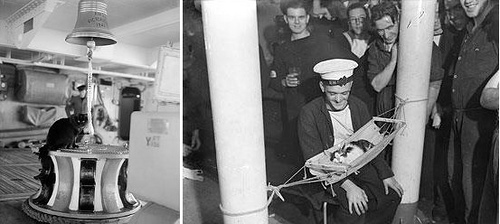
Another great man who lost his head after death: René Descartes. The French philosopher died in Sweden in 1650 and was interred there for 16 years. When his body was exhumed for return to France, the ambassador appropriated his right index finger (“the instrument of immortal writing”) and, apparently inspired, one of the Swedish guards took the skull, engraving on it “Descartes’ skull, taken and carefully kept by Israel Planstrom when the body was sent to France and hidden since that time.”
The skull bounced around Europe for 150 years, with various owners carving their names on it; it was discovered missing only when the coffin was opened again in 1819. A Swedish chemist, no doubt rolling his eyes, tracked it down and returned it to the French academy.
Bonus beheading: When Sir Walter Raleigh was executed in 1618, his head was embalmed and given to his wife. She kept it until her death in 1647, when it was returned to Raleigh’s tomb in Westminster Abbey.
For those keeping score, our list now includes Descartes, Raleigh, Joseph Haydn, Oliver Cromwell, Jeremy Bentham, and Albert Einstein. Keep ’em coming.
(Thanks, Sarah.)





